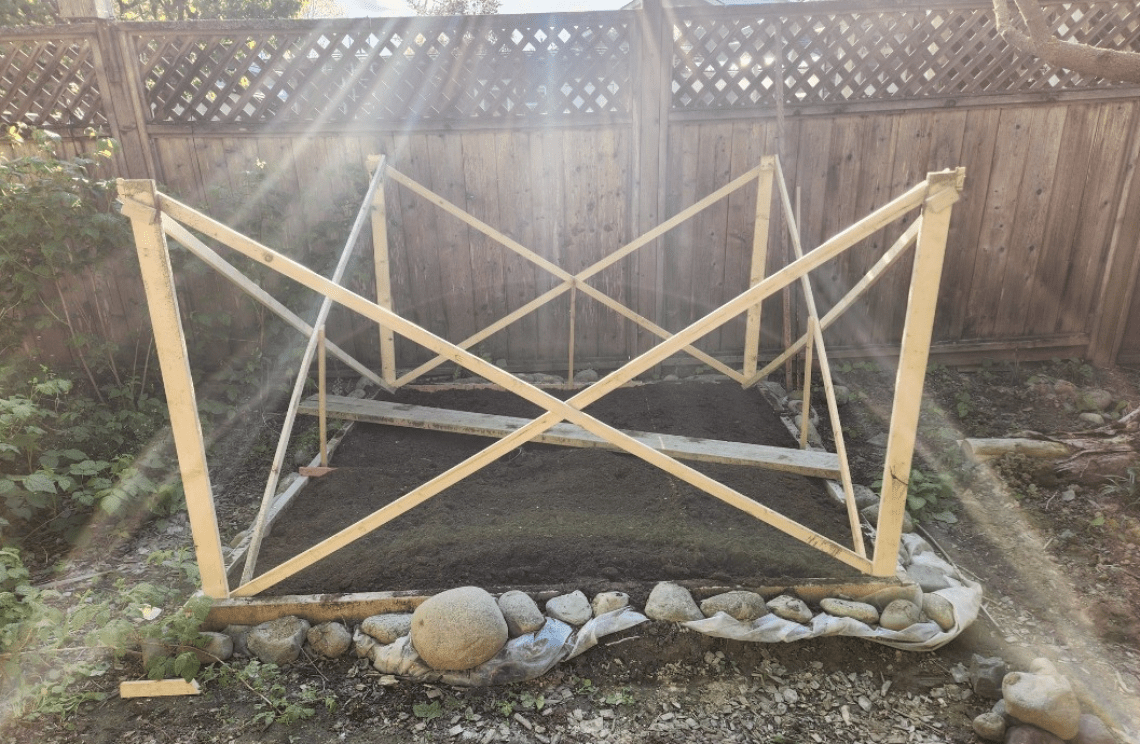Halle Walle shares her story
A “unique archaeological phenomenon” sparked Halle Walle’s desire to get a taste of life in ancient times – figuratively and literally.
Halle is a fourth-year VIU student working towards her Bachelor of Arts with a double major in History and Anthropology. During an anthropology course, she learned about a rare food from hundreds of years ago” called bog butter.
Bog butter is an ancient dairy butter that has been found buried in peat bogs, primarily in modern-day Ireland and Scotland. It was traditionally stored in wooden containers or animal skins and buried for preservation, sometimes developing a distinctive smell and texture over centuries. Gaelic, Celtic and Bronze age culture groups have deposited butter in bogs for roughly 3,500 years.
The butter was stored in containers, which were submerged in bogs and left there, either accidentally or on purpose. Today, these containers are being discovered with the butter still inside, preserved because the bog’s sphagnum peat moss creates a low-oxygen, acidic environment that prevents decomposition.
“Bog butter is a fascinating phenomenon to me, since it is very rare that food from hundreds of years ago is preserved – especially dairy products,” says Halle. “Informing about the mysterious ways people existed and survived in the past is the base of what I love in academia and the added bonus of tasting the past is incredibly enchanting to me.”
Understanding how people existed in the past “is incredibly fulfilling and necessary,” says Halle.
“Wetlands (which include bogs) are an incredibly endangered ecosystem and by losing wetlands we also lose all the ancient and rich cultural history that is preserved in them. I think my experimentation could both inform on the mysteries of people in the past as well as add a unique type of motivation to continued conserving of wetlands.”
To give herself a true firsthand idea of what these ancient cultures experienced, Halle is producing bog butter that is “as archaeologically and historically accurate” as possible. She’s basing the recipe, storage containers and the environment on existing archeological literature.
“I want to build a deeper understanding of the people who made the bog butter and I think a good way to do that is through making it myself,” she says.
Halle has created a small peat bog in her backyard, where she will submerge the butter before removing it and examining it for scent, taste and texture, which means “I will inevitably have to eat it myself,” she says. “I plan on doing multiple trials in which I will experiment with the volume of butter, the length of time submerged and various other variables. I hope it tastes okay. I might be slightly heartbroken if it is horrible.”

Halle created this small peat bog in her backyard as part of her research.
At this point, she hasn’t submerged any butter, but says she’s already made a couple interesting observations, including the fact that the bog “never appears to lose moisture even in very hot weather,” and that the tannins in the peat can actually dye organic material, which she found out after she dug up a bone her dog had buried and it was dyed bright red.
Halle also received a VIU REACH Award in support of her research this year.
“Winning the award really fostered confidence in me,” she says. “I never thought I could pursue an academic career and receiving this award really helped me to believe in my abilities more. I am incredibly thankful that this kind of support is available for students such as myself because it allows us to follow our interests and build our professionalism and individualism.”
Halle is also heading to Poland this month as part of a mortuary archaeology field school.
“The school teaches incredibly important aspects of archaeological digs and specializes in the excavation of human skeletal material,” she says. “I will be learning human osteology, lab work and excavation methods. As a student I have only gotten experience in the classroom, and I know it is integral to my future career to have hands-on training in the field.”
The purpose of her trip is two-fold, as Halle also plans to pursue a master’s degree in Europe once she graduates from VIU.
“I want to continue research into Iron Age and Medieval history/archeology in Europe,” she says.
She’s grateful for the support and opportunities she’s received at VIU.
“All of my work could not be possible without the incredible support of my teachers and advisors at VIU and I would not be pursuing all of these goals without their support and advice.”
Related Posts
Got an article idea for the blog? Email students@viu.ca.



